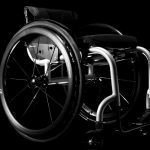[grwebform url=”https://app.getresponse.com/view_webform_v2.js?u=zZ4xV&webforms_id=18433203″ css=”on” center=”off” center_margin=”200″/]
Friedreich’s ataxia is an inherited gene disorder. For sufferers, the gene is passed down from both parents. If the gene is passed down from only one parent, the person will be a carrier and does not usually experience the symptoms. So, how do you identify the symptoms?
Below, we have given a brief outline of the 5 major symptoms of Friedreich’s ataxia.
- Difficulty with walking – this is probably the most common initial symptom. Friedrich’s ataxia can affect the legs in different ways. This includes: weakening the muscles and leg reflexes, poor coordination and balance, foot deformities, such as clubfoot and being unable to sense vibrations in the lower limbs. As Friedrich’s ataxia is a progressive disease, walking will become more difficult over time. Most people are diagnosed between the ages of 10 and 15 and it is likely they will require a wheelchair or other mobility aid by the time they reach early adulthood.
- Scoliosis – linked to the weakened leg muscles, together with core muscle degradation, Scoliosis can cause curvature of the spine.
- Heart disease – Around three-quarters of people with Friedreich’s ataxia will develop some form of heart disease, usually hypertrophic cardiomyopathy which is when the heart muscle becomes thickened.
- Sensory changes – as Friedreich’s ataxia is a neuromuscular disease, it can also attack the senses. Symptoms such as loss of hearing, involuntary eye movements, vision impairment, and speech problems may be experienced.
- Diabetes mellitus – It has been estimated that between 10 and 20 percent of people living with Friedreich’s ataxia go on to develop diabetes and will become insulin dependent.
If you recognise any of these conditions in yourself or a loved one, then you should seek medical advice immediately.
Thanks to Friedrich’s Ataxia news for the information in putting this article together. Visit their Web site for more information and lots of helpful resources.






Recent Comments